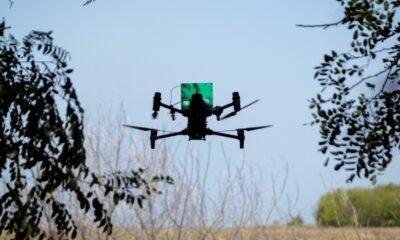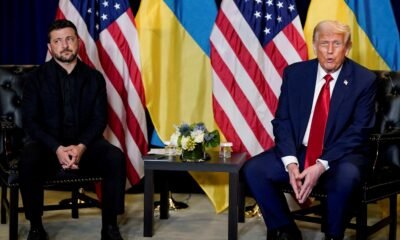INTERNACIONAL
Golpes, torturas y muerte: el calvario de los soldados ucranianos presos en las cárceles de Rusia
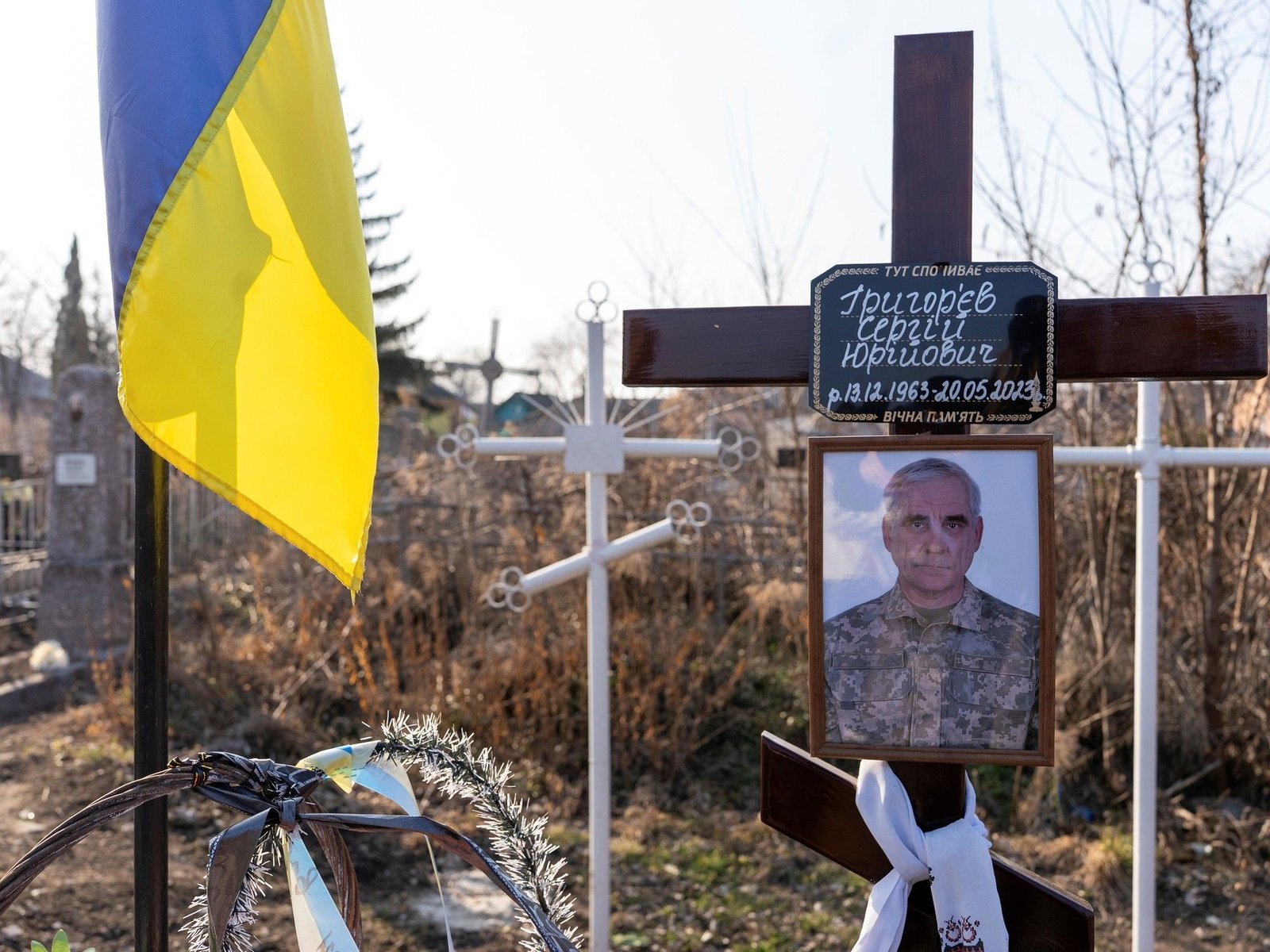
INTERNACIONAL
FBI’s Patel clarifies role of hundreds of agents on Jan 6, says Wray lied to Congress

NEWYou can now listen to Fox News articles!
EXCLUSIVE: The FBI responded on Saturday to a report that 274 plainclothes agents were at the U.S. Capitol riot on Jan. 6, 2021, clarifying the role of bureau personnel while still blasting former Director Christopher Wray.
While the agents were on hand, they were sent in after the riot had begun to try to control the unruly crowd, officials told Fox News Digital. That is not the proper role of FBI agents, and Wray was not forthcoming about what happened when he testified numerous times on Capitol Hill, Director Kash Patel said.
«Agents were sent into a crowd control mission after the riot was declared by Metro Police – something that goes against FBI standards,» Patel told Fox News Digital. «This was the failure of a corrupt leadership that lied to Congress and to the American people about what really happened.»
He added, «Thanks to agents coming forward, we are now uncovering the truth. We are fully committed to transparency, and justice and accountability continues with this FBI.»
There’s no indication any FBI agents were involved in any events related to Trump’s speech on the morning of Jan. 6 at the Ellipse, an FBI official told Fox News Digital, adding that Wray should have disclosed that agents were there when he was asked by congressional leaders.
FBI’S KASH PATEL VOWS ‘DEFINITIVE ANSWER’ ON TOP JAN 6 QUESTION IS ‘COMING’
The FBI responded on Saturday after President Donald Trump said that former FBI Director Christopher Wray «has some major explaining to do» following a report that said 274 plainclothes agents were at the riot on Jan. 6, 2021. (Tayfun Coskun/Anadolu Agency via Getty Images)
President Donald Trump, citing a report that the agents were in the crowd which did not make clear their mission, said earlier that Wray, «has some major explaining to do.»
«It was just revealed that the FBI had secretly placed, against all Rules, Regulations, Protocols, and Standards, 274 FBI Agents into the Crowd just prior to, and during, the January 6th Hoax,» Trump wrote in a Truth Social post on Saturday afternoon following a report from The Blaze, revealing the number of agents that were there.
Trump added, «This is different from what Director Christopher Wray stated, over and over again! That’s right, as it now turns out, FBI Agents were at, and in, the January 6th Protest, probably acting as Agitators and Insurrectionists, but certainly not as ‘Law Enforcement Officials.’»
The president said he wanted to know each officer’s identity and what they were doing at the U.S. Capitol.
«Many Great American Patriots were made to pay a very big price only for the love of their Country,» he said, referring to Trump supporters who faced charges for their involvement on Jan. 6.
Trump pardoned or commuted the sentences of every person charged for involvement on Jan. 6 after he took office this year.
DOJ INSPECTOR GENERAL DOES NOT DENY FBI INFORMANTS WERE AMONG JAN. 6 CROWD
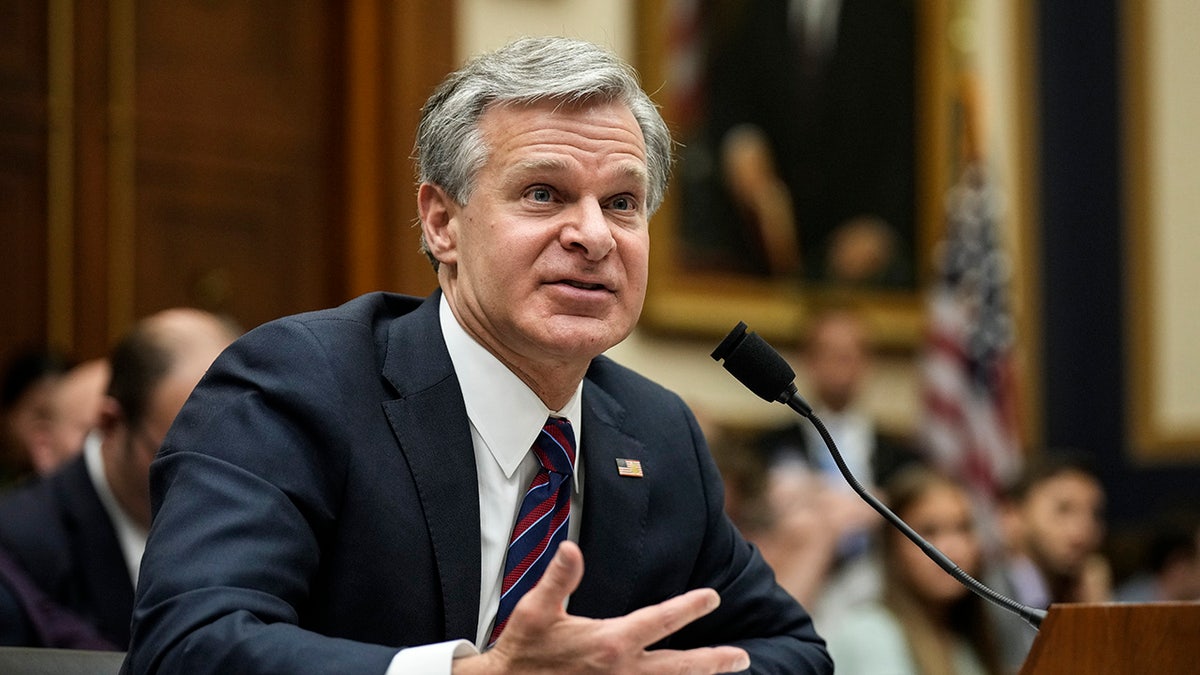
Then-FBI Director Christopher Wray told the House Judiciary Committee on Nov. 15, 2023, «If you are asking if the violence at the Capitol was part of some operation orchestrated by FBI sources or agents, the answer is no.» (Drew Angerer/Getty Images)
He concluded, «I owe this investigation of ‘Dirty Cops and Crooked Politicians’ to them! Christopher Wray, the then Director of the FBI, has some major explaining to do. That’s two in a row, Comey and Wray, who got caught LYING, with our Great Country at stake. WE CAN NEVER LET THIS HAPPEN TO AMERICA AGAIN!»
Citing a senior congressional source, the Blaze report said that the number of agents wasn’t «necessarily a surprise» because the FBI often «embeds countersurveillance personnel at large events.»
Wray told a House Committee on Nov. 15, 2023, «If you are asking if the violence at the Capitol was part of some operation orchestrated by FBI sources or agents, the answer is no,» but he wouldn’t disclose if any agents or sources were embedded within the crowd.
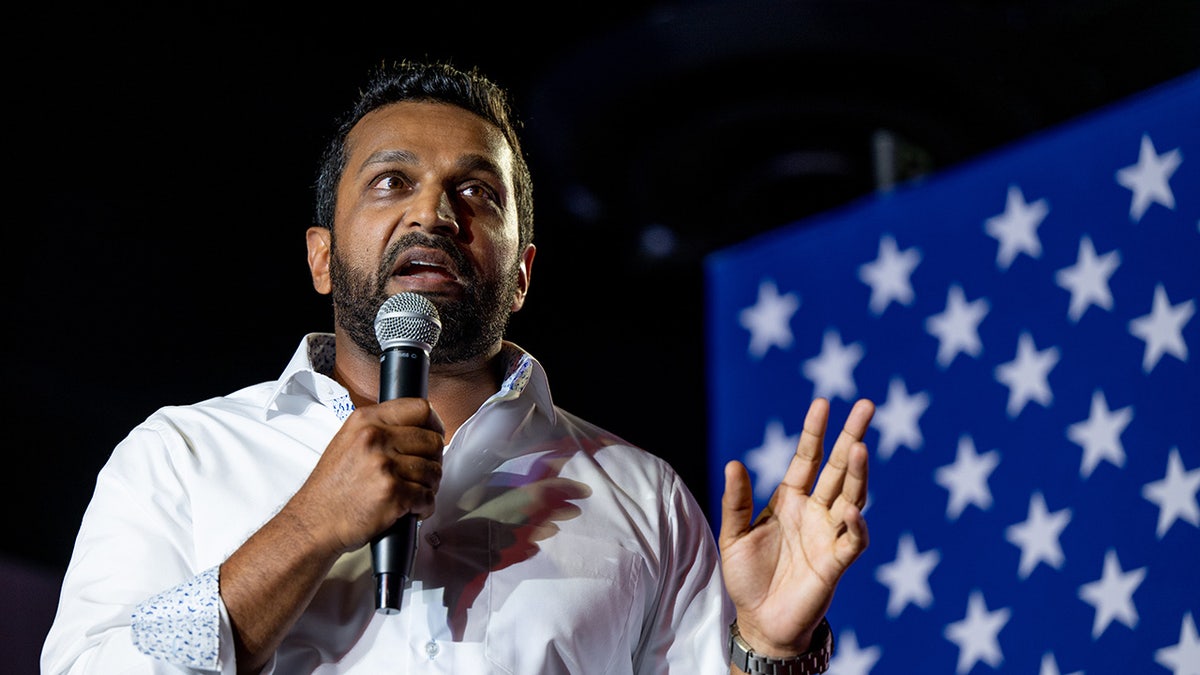
FBI Director Kash Patel said in a statement that agents were sent to the Capitol on Jan. 6 for crowd control after it was declared a riot against agency policy. (Brandon Bell/Getty Images)
The 274 agents also includes those who were responding to the pipe bombs placed near the Democratic National Committee and Republican National Committee headquarters the night before Jan. 6, according to Politico.
Trump nominated Wray as FBI director in 2017 after he fired former FBI director James Comey, who was just indicted by a grand jury this week for allegedly making false statements to Congress.
FBI AGENTS ACROSS THE COUNTRY ARE TOLD TO RESIGN, RETIRE OR BE FIRED
A report released last December by Justice Department Inspector General Michael E. Horowitz said: «We found no evidence in the materials we reviewed or the testimony we received showing or suggesting that the FBI had undercover employees in the various protest crowds, or at the Capitol, on January 6,» although he acknowledged there were 26 paid informants, but only three of them were assigned by the FBI to be there.
The report also said that FBI personnel were sent to the Capitol at the request of overwhelmed Capitol Police to help with crowd control.
Horowitz said that none of the informants were allowed to incite the crowd, break the law or enter the U.S. Capitol.
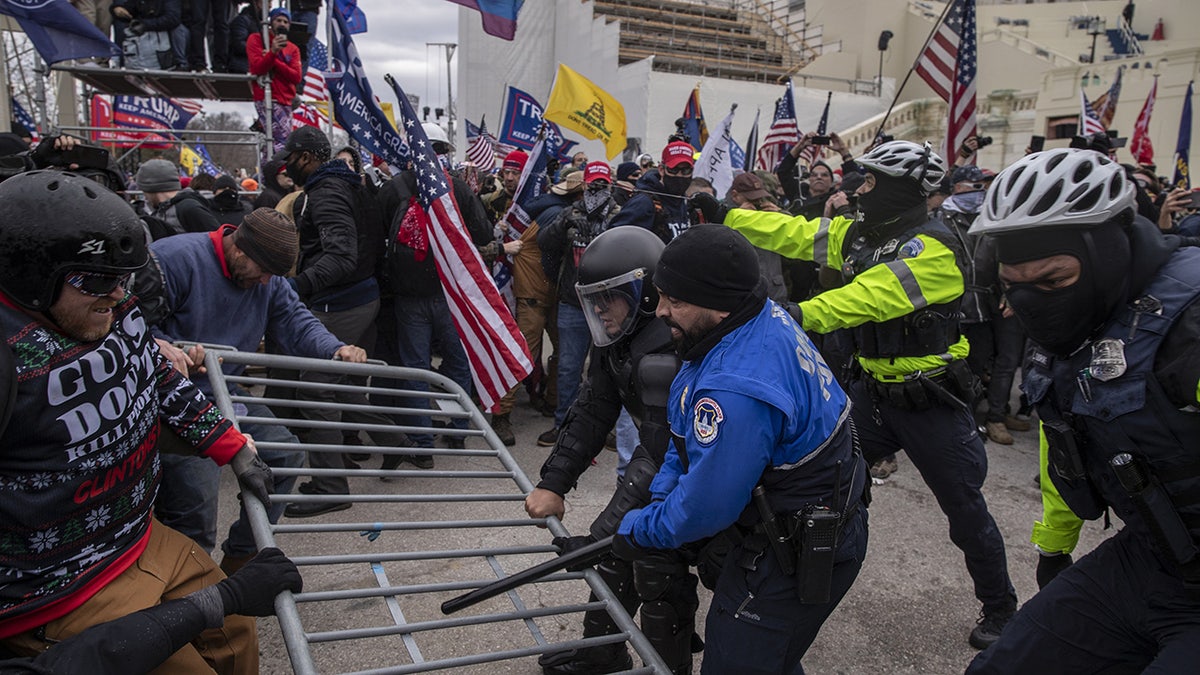
Rioters and U.S. Capitol police battle over a barricade at the U.S. Capitol on Jan. 6, 2021. (Victor J. Blue/Bloomberg via Getty Images)
In its reporting, Blaze noted that there may have been confusion regarding «plainclothes» and «undercover,» meaning both the inspector general and the FBI could be telling the truth.
Many of the agents weren’t happy to have been sent to the Capitol to do crowd control, another official told Fox News Digital. It was a chaotic scene with no pre-planning that contradicted the agency’s original plan to not get involved in the event. The official said that agents are not trained to do crowd control.
The first agents arrived at the Capitol around 2:30 p.m. — there’s no evidence there were any there before a riot was declared — and agents continued to arrive after that, the official added.
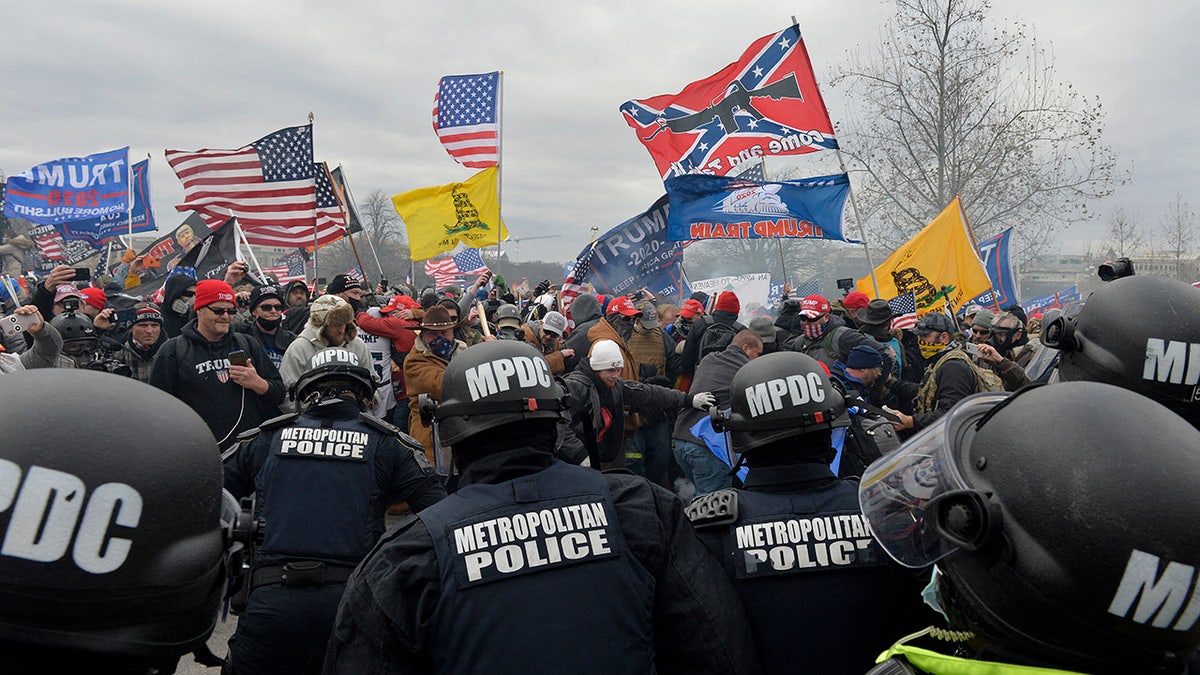
Trump supporters clash with police and security forces at the U.S. Capitol in Washington D.C., on Jan. 6, 2021. (Joseph Prezioso/AFP via Getty Images)
CLICK HERE TO GET THE FOX NEWS APP
Wray had testified before Congress prior to the inspector general’s report being released in December, but Patel called out Wray for deflecting and giving a «D.C. answer» when pressed by lawmakers.
«Why it took a ton of time and questioning in Congress for the director to get that point is what I’m trying to eliminate from the FBI,» Patel said. «If Congress asks you a question under oath, whether or not there were sources in [or] around Jan. 6th at the Capitol, you as the director of the FBI need to know that and not deflect and give a D.C. answer. You have to be prepared for that.»
Fox News’ Brooke Singman contributed to this report.
fbi,capitol protests,politics,donald trump,congress
INTERNACIONAL
En un acto por el aniversario de la muerte de Nasrallah, el jefe de Hezbollah dijo que el grupo terrorista no depondrá las armas

El líder del grupo terrorista libanés Hezbollah, Naim Qassem, reafirmó este sábado que no depondrán las armas, durante un acto multitudinario para conmemorar el primer aniversario de la muerte de su predecesor, Hassan Nasrallah, que se produce en medio de una iniciativa estatal para desarmar al movimiento.
“He estado siguiendo tu camino desde tu ausencia, seremos los portadores de la verdad (…) No dejaremos el frente de guerra y no abandonaremos las armas”, sentenció Qassem en un discurso emitido en grandes pantallas frente a miles de seguidores congregados a las afuera de Beirut.
“Continuaremos, seremos resilientes y estaremos listos para el martirio”, defendió el actual secretario general de Hezbollah.
Las conmemoraciones por Nasrallah, que lideró la formación durante más de tres décadas hasta su muerte hace este sábado un año, coinciden con una iniciativa del Gobierno libanés para desarmar a Hezbollah, como parte de sus esfuerzos para que solo haya armamento en manos de las fuerzas de seguridad estatales.
Este mes, el Ejército presentó un plan con este objetivo por encargo del Consejo de Ministros, que la institución castrense tiene previsto implementar en fases en función de sus capacidades.
Qassem criticó que los intentos de dejarles sin armamento buscan en verdad “desarmar al Líbano” y llamó al Gobierno a centrarse en defender la “soberanía” del país, poniendo fin a la presencia de las tropas israelíes que aún ocupan cinco puntos de su territorio.
En medio de los esfuerzos para desarmar a Hezbollah, realizados entre fuertes presiones estadounidenses, el líder del movimiento insistió en que se enfrentarán a cualquier programa que sirva a los intereses de Israel “incluso si está disfrazado como un proyecto nacional”.
Sin embargo, destacó la necesidad de mantener la “unidad interna” en el Líbano y de trabajar hacia lograr un país “fuerte”, al considerar que su formación es “la base de esa fuerza”.
“El enemigo esperaba que cayéramos, pero volvimos a tomar la iniciativa, elegimos a un nuevo secretario general y sustituimos con nuevos líderes”, zanjó Qassem.
Por su parte, el secretario del Consejo Supremo de Seguridad Nacional iraní (CSSN), Ali Larijani, llegó este sábado al Líbano para participar en las conmemoraciones por el primer aniversario del asesinato del líder histórico del grupo chií Hezbollah, Hasán Narala.
Larijani aterrizó en el Aeropuerto Internacional de Beirut acompañado por una “delegación oficial de alto nivel” para tomar parte en las ceremonias que se celebrarán esta tarde en los suburbios capitalinos, informó la Embajada iraní en el Líbano en su cuenta de X.
Este sábado tendrán lugar los actos centrales para conmemorar el primer aniversario del fallecimiento de Nasrala, que encabezó a Hezbollah durante más de 30 años y que murió en un bombardeo israelí contra una sede subterránea a las afueras de Beirut el 27 de septiembre de 2024.
El evento principal tendrá lugar en el santuario donde está enterrado el ex secretario general de Hezbollah e incluirá un discurso por parte de su sucesor, Naim Qassem, mientras que a la hora exacta de su muerte -18.21 hora local (15.21 GMT)- se han convocado vigilias por todo el país.
Hezbollah arrancó esta semana una serie de conmemoraciones por Nasrala y otros líderes asesinados el pasado año durante la guerra con Israel, actos que continuarán hasta mediados de octubre.
La fecha coincide con intentos del Gobierno libanés para desarmar al movimiento político y armado chií, que se niega a acatar la decisión mientras continúen los ataques israelíes contra el Líbano y la presencia de su Ejército en cinco áreas del territorio del país.
(Con información de EFE)
Anniversaries,Middle East,Civil Unrest,BEIRUT
INTERNACIONAL
Russia’s Sergey Lavrov warns NATO countries in UNGA speech after Trump shifts tone on Ukraine
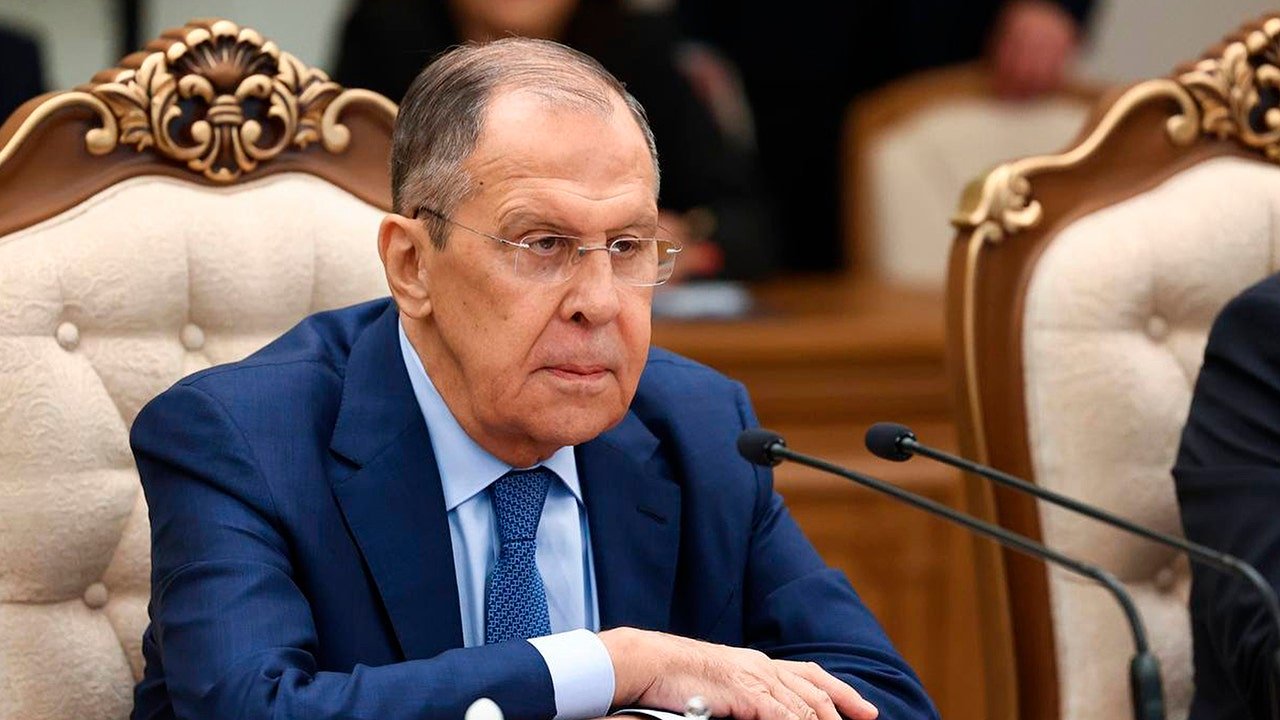
NEWYou can now listen to Fox News articles!
Russian Foreign Minister Sergey Lavrov used his address to the United Nations General Assembly (UGNA) on Saturday to deliver one of Moscow’s starkest warnings yet to the West, accusing NATO and the European Union of waging a «real war» against Russia.
Lavrov opened with sweeping historical references to World War II, positioning Russia as the heir to the Soviet Union’s role in defeating Nazism and defending global sovereignty. He accused the U.S. of dismantling those postwar principles through interventions in Yugoslavia, Iraq and Libya, and warned that the same was happening today in the Middle East.
While condemning Hamas’s Oct. 7, 2023, attack, Lavrov said Israel’s campaign in Gaza amounted to «collective punishment» of civilians, linking the conflict to what he portrayed as decades of unchecked Western use of force.
Lavrov accused NATO of ignoring decades of security commitments. He insisted Russia has «never had and does not have» plans to attack NATO countries, calling Western warnings of a Russian offensive «provocations.»
UN SECURITY COUNCIL REJECTS CHINA-RUSSIA RESOLUTION EXTENDING IRAN NUCLEAR SANCTIONS RELIEF BEFORE DEADLINE
Russian Foreign Minister Sergey Lavrov addressed the United Nations General Assembly on Saturday, issuing one of Moscow’s starkest warnings to the West yet. (Russian Foreign Ministry Press Service telegram channel via AP)
He singled out claims by European leaders as «false portrayals» of Moscow’s intentions, echoing President Vladimir Putin’s denials that Russia plans to strike NATO or EU territory. At the same time, Lavrov issued a direct threat: «Any aggression against my country will be met with a decisive response. There should be no doubt about this among those in NATO and the EU.»
The warning comes amid heightened tension along NATO’s eastern flank. Estonia recently accused Russian jets of violating its airspace, and NATO forces shot down drones over Poland. The U.S. responded by telling the U.N. Security Council it would «defend every inch of NATO territory.» Against this backdrop, Lavrov’s speech underscored Moscow’s effort to frame any clash with NATO as an existential threat to Russia itself.
The timing also intersects with a shift in U.S. rhetoric. President Donald Trump, who met with Ukrainian President Volodymyr Zelenskyy earlier this week, has hardened his tone on the war – telling reporters that Ukraine can and should reclaim all its territory.
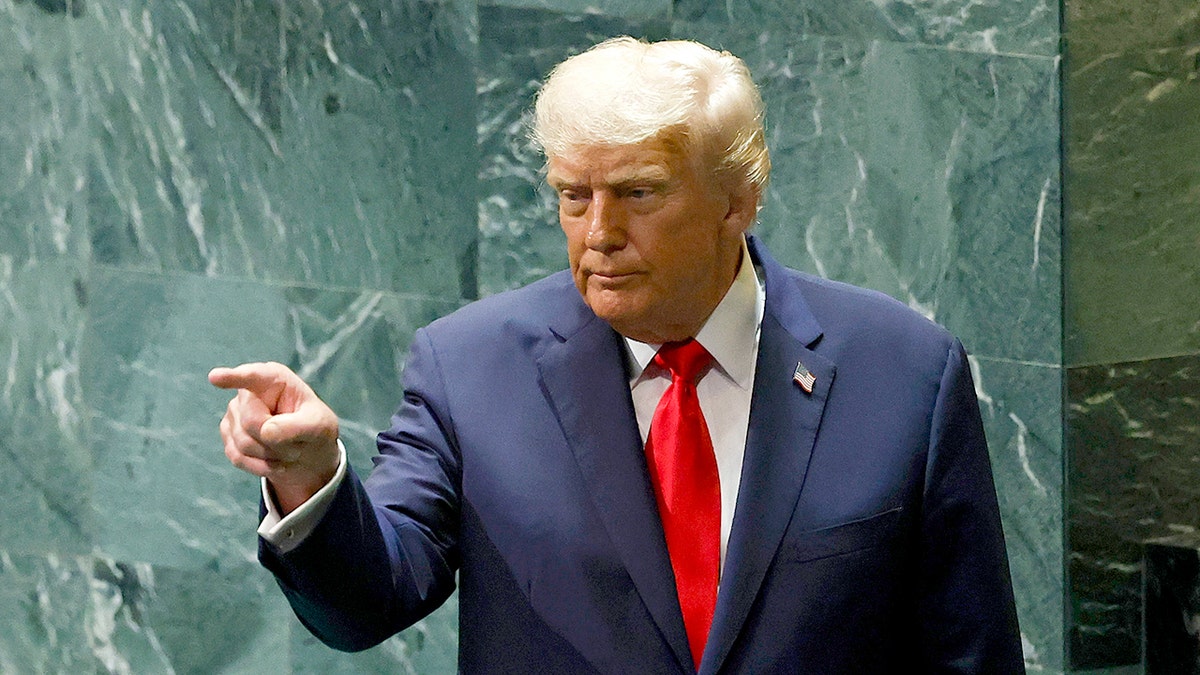
President Trump has also embraced firmer rhetoric on the war. ( Chip Somodevilla/Getty Images)
That marks a departure from earlier signals of openness to negotiation, more than a month after U.S. and Russian officials held rare talks in Alaska. Lavrov’s UN address seemed calibrated to counter Trump’s new line, reminding Washington that Moscow sees the war not as a distant conflict but as a direct confrontation involving the United States.
Ukrainian President Zelenskyy, in his own address to the General Assembly, warned that failing to stop Russia now would unleash «the most destructive arms race ever.»
Lavrov reinforced his message at a press conference after the speech, responding to a question about Western calls to shoot down Russian aircraft that might violate European airspace. He dismissed Trump’s earlier remark that Russia was a «paper tiger,» noting that the president had already walked it back.
He then issued a stark warning: «If there are attempts to down any flying object … over our territory, in our airspace, then I think people will very much regret it, undertaking such an egregious violation of our territorial integrity and sovereignty.»
WORLD LEADERS LAUGH, SQUIRM AS TRUMP BLASTS UN ON CLIMATE, UKRAINE, GAZA AT GENERAL ASSEMBLY
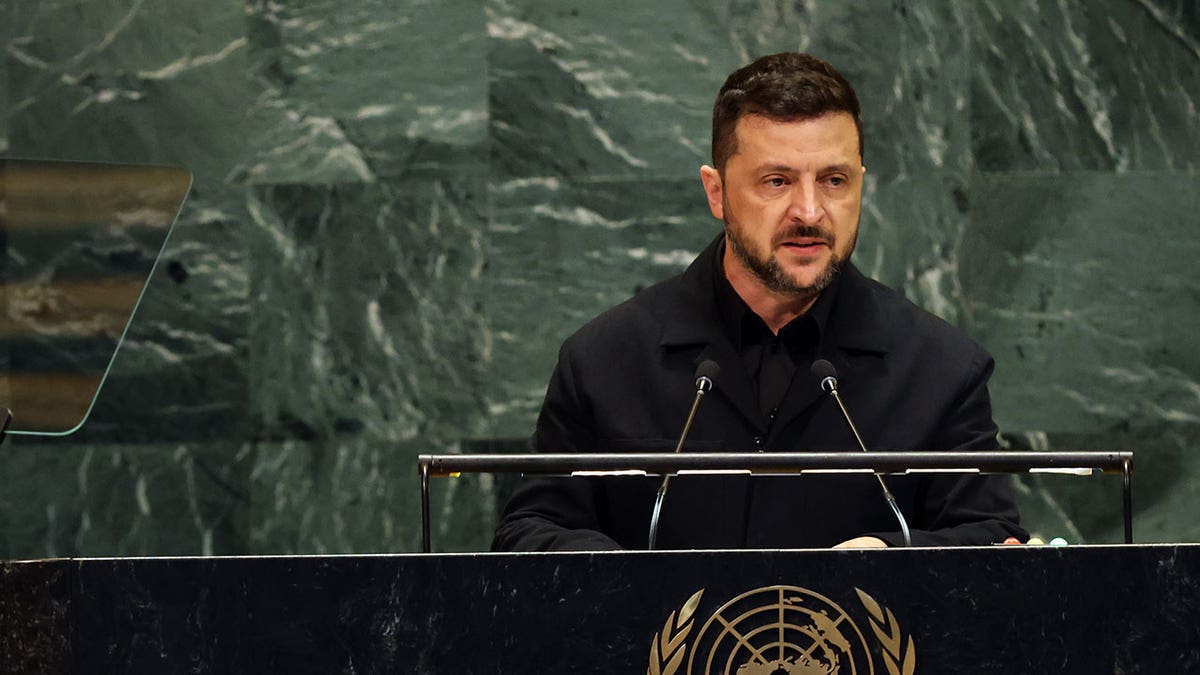
Ukrainian President Volodymyr Zelenskyy issued a warning of his own before the General Assembly: failure to stop Russia now will lead to «the most destructive arms race ever.» (Spencer Platt/Getty Images)
Lavrov also took aim at U.S. sanctions on Iran, blasting Western efforts to restore or tighten restrictions as «illegal» and evidence of what he described as Washington’s strategy of «blackmail and pressure.»
He said the West had sabotaged diplomatic options to revive the 2015 nuclear deal and rejected what he called manipulations at the U.N. Security Council to isolate Tehran.
CLICK HERE TO GET THE FOX NEWS APP
Beyond Europe, Lavrov portrayed Russia as aligned with a rising «global majority» against Western dominance, pointing to BRICS, the Shanghai Cooperation Organization, and African and Latin American calls for greater representation at the U.N. Security Council.
He accused Washington of using sanctions and military blocs to preserve hegemony, while claiming Russia was defending sovereignty for nations across the Global South.
russia,united nations,world politics,ukraine,world,nato

 CHIMENTOS1 día ago
CHIMENTOS1 día agoMario Massaccesi confesó toda la verdad detrás de su fuerte pelea con Paula Bernini

 POLITICA2 días ago
POLITICA2 días agoPatricia Bullrich: “Kicillof tiene que hacerse cargo del problema enorme de inseguridad que tiene la provincia de Buenos Aires”

 ECONOMIA2 días ago
ECONOMIA2 días agoEl Gobierno empezó a recuperar reservas: se aceleró la liquidación y el Tesoro aprovechó para comprar unos USD 700 millones



